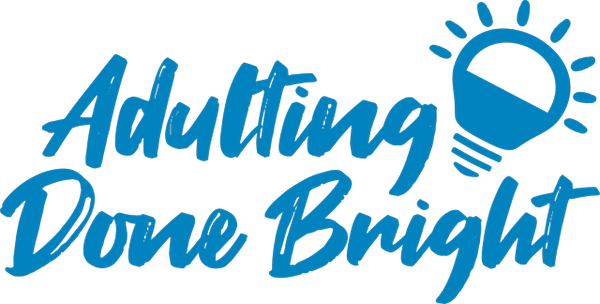Rhodiola Rosea Benefits: Top 5 Science-Backed Ways It Fights Stress & Fatigue
Share
Feeling drained from the demands of adulting? Rhodiola Rosea is a powerful adaptogen that has been used for centuries to combat stress, boost energy, and support mental clarity. But does science back these claims? Let’s explore the top Rhodiola Rosea benefits and how this natural herb can help you power through your day.
What is Rhodiola Rosea?
Rhodiola Rosea is an adaptogenic herb that grows in cold regions of Europe and Asia. Traditionally used in Russian and Scandinavian medicine, this plant has gained modern attention for its ability to support stress resistance, energy levels, and cognitive function. As an adaptogen, it helps the body balance cortisol levels and adapt to physical and mental stress.
Top 5 Rhodiola Rosea Benefits
1. Reduces Stress & Supports Mental Well-being
One of the most well-known Rhodiola Rosea benefits is its ability to reduce stress and anxiety. Studies suggest that it may help regulate cortisol, the body's primary stress hormone, leading to improved mood, reduced anxiety, and better overall resilience in high-pressure situations.[1]
2. Boosts Energy & Reduces Fatigue
Ever feel completely drained by mid-afternoon? Research indicates that Rhodiola Rosea may help combat fatigue by supporting mitochondrial energy production. This means more stamina and reduced burnout, making it a favorite among students, professionals, and athletes.[2]
3. Enhances Cognitive Function & Focus
Struggling to concentrate? Rhodiola has been studied for its role in enhancing memory, mental clarity, and problem-solving skills. Some research even suggests that it may help slow cognitive decline as we age.[3]
4. Supports Athletic Performance & Physical Endurance
Many athletes turn to Rhodiola for its ability to increase endurance and reduce perceived exertion during exercise. It may also help muscles recover faster by reducing oxidative stress.[4]
5. Helps Balance Cortisol & May Improve Sleep Quality
Since Rhodiola helps regulate cortisol, it may indirectly support better sleep patterns. While not a sedative, it can help prevent cortisol spikes that contribute to poor sleep and nighttime wakefulness.[5]
How to Take Rhodiola Rosea
To maximize the benefits of Rhodiola Rosea, consider the following:
- Dosage: Most studies suggest 200-600 mg per day of a standardized extract (3% rosavins, 1% salidroside).
- Best Time to Take: Morning or early afternoon to avoid interfering with sleep.
- With or Without Food? Can be taken with or without food, but best absorbed when consumed earlier in the day.
Rhodiola Rosea vs. Other Adaptogens
Rhodiola Rosea isn’t the only adaptogen out there. Here’s how it compares to other popular herbs:
| Adaptogen | Main Benefits | Best For |
|---|---|---|
| Rhodiola Rosea | Energy, stress relief, mental clarity | Burnout, fatigue, focus |
| Ashwagandha | Calming, reduces anxiety, supports sleep | Chronic stress, insomnia |
| Ginseng | Physical endurance, immune support | Low energy, immune health |
Potential Side Effects & Considerations
While Rhodiola Rosea is generally well-tolerated, some people may experience:
- Increased energy that may feel overstimulating if taken in high doses
- Possible interactions with medications (consult a healthcare professional before use)
- Mild dizziness or digestive discomfort in sensitive individuals
Final Thoughts: Should You Try Rhodiola Rosea?
If you’re constantly feeling exhausted and overwhelmed, Rhodiola Rosea could be a natural way to regain balance. It has been studied for its ability to reduce stress, improve energy, and enhance focus, making it a great option for parents, professionals, and anyone trying to keep up with life’s demands.
Did you Know?
Parenity's morning beverage, Adulting Done Bright, contains 200mg of Rodiola Rosea, along with 6 other beneficial ingredients (Ashwagandha, Micronized Creatine Monohydrate, Panax Ginseng Extract, Theanine, Caffeine, Saffron Extract) to get your day started right? Maybe it's time to swap out (or supplement) the morning coffee routine or start an all-new morning ritual from scratch. Read all about it here.
FAQ: Rhodiola Rosea Benefits
How long does it take for Rhodiola Rosea to work?
Some people notice benefits right away, but full effects typically develop after 2-4 weeks of consistent use.
Can I take Rhodiola Rosea every day?
Yes! Most research supports daily use in the recommended dosage range (200-600 mg per day).
Does Rhodiola Rosea have any stimulant effects?
Rhodiola is not a stimulant, but it can increase energy levels. If you’re sensitive, avoid taking it late in the day.
Is Rhodiola Rosea safe for long-term use?
Research suggests it is safe for extended use, but taking occasional breaks may help maintain effectiveness.
References:
- Panossian A, Wikman G. "Pharmacology of Rhodiola rosea". Phytomedicine. 2010.
- Spasov AA, et al. "Effects of Rhodiola rosea on mental performance". Phytotherapy Research. 2000.
- Shevtsov VA, et al. "Rhodiola rosea and cognitive function". Neuroscience & Biobehavioral Reviews. 2003.
Want to see more natural ways to stay energized? Check out our full blog here!



